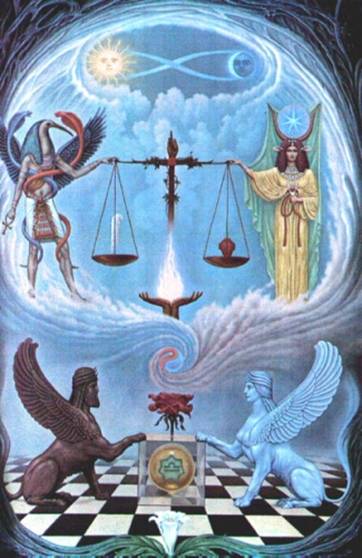A successful lawsuit is the one worn by a policeman.
Wills, Inheritances, and Trusts
(part B)
by
Charles Lamson
The Wording of a Will
When writing a will, any words that convey the intention of the testator (a person who has made a will or given a legacy) suffice. No matter how rough and ungrammatical the language may be, if the intention of the testator can be ascertained, the court will order that the provisions of the will be carried out. Since the court will order the terms of a will to be carried out exactly, the wording of the will should express the exact wishes of the testator.
 |
Revocation
A will may be revoked at any time prior to the death of the testator. The revocation may take any one of several forms.
Codicils
A codicil is a separate writing that modifies a will. Except for the part modified, the original will remains the same. A codicil must be executed with all the formalities of the original will.
Destruction or Alteration
If the testator deliberately destroys a will, this constitutes a revocation. If the testator merely alters the will, this may or may not revoke it, depending upon the nature and the extent of the alteration. If the testator merely obliterates a part of the will, in most states this does not revoke the will.
Marriage and Divorce
If a single person makes a will and later marries, the marriage may revoke the will in whole or in part, or the will may be presumed to be revoked unless made in contemplation of the marriage or unless it made provision for a future spouse. In some states a marriage will not revoke a will completely, but only if so that the spouse will get the estate that would have been received in the absence of a will. A divorce automatically revokes a will to the extent of the property left to the divorced spouse if the court orders a division of property; otherwise, a divorce usually in no way affects the will.
Execution of a Later Will
The execution of a later will automatically revokes a prior will if the terms of the second conflict with the first will. If the second will merely changes a few provisions in the first will and leaves the bulk of it intact, then a second revokes the first will only to the extent of such inconsistency.

After-Born Child
A child may be born or adopted after a person makes a will. If the original will does not provide for subsequent children or the testator makes no codicil to provide for the child, this revokes or partially revokes the will.
Abatement and Ademption
A legatee in the law of wills is any individual or organization bequeathed any portion of a testator's estate. An abatement occurs when a testator makes bequests of money in the will and the estate does not have enough money to pay the bequests. The legatees will receive a proportionate share of the bequests.
An ademption occurs when a testator makes a bequest of specific property and the estate does not have the property at death. In this case, the legatee gets nothing.
If a testator leaves $20,000 to his son John, $10,000 to his sister Mary, and a painting to his brother Adam, there could be both an abatement and an ademption. If the estate has only $15,000 in cash left after paying all debts, the cash gifts to John and Mary will abate. Each will receive a proportionate share, in this case 50%, or $10,000 and $5,000, respectively. If the testator had sold the painting, given it away, or someone had stolen, destroyed, or lost the painting before the death of the testator, Adam would get nothing. The bequest to him is adeemed since the property was not in the estate at the testator's death. He has no right to his cash value or any other substitute item of property.

Probate of a Will
When a testator dies leaving a will, the will must be probated. Probate is the court procedure that determines the validity of a will. The will normally names an executor to preserve and handle the estate during probate and distribute it to the rightful individuals. An executor has liability to legatees, creditors, and to the rightful individuals. An executor has liability to legatees, creditors, and heirs for loss to the estate as a result of a negligent, bad faith, or breach of trust and must comply with any instructions in the will. A will may expressly direct the executor to continue a business owned by the deceased. If the will does not so provide, an executor frequently can obtain permission of the appropriate court to continue the business. With but few exceptions, anyone may be appointed executor. The testator may excuse the executor from furnishing a bond that would be an expense to the estate. If the will does not name an executor, then upon petition of one of the beneficiaries the court will appoint an administrator.
If a person contests the will, the court must hear the contest to determine the validity of the will. A contest of the will differs from litigation over the meaning or interpretation to be given the will. If the contest alleges and proves fraud, undue influence, improper witnessing, mental incapacity of the testator, revocation of the will, or any other infirmity in the will affecting its legality, the court will find the will nullified. It will then distribute the property of the testator according to the law of descent described in the next post and conclusion of this discussion on business law (part 66). Until then, stay tuned...
*SOURCE: LAW FOR BUSINESS, 15TH ED., 2005, JANET E. ASHCROFT, J.D., PGS. 546-549*
end
|


No comments:
Post a Comment